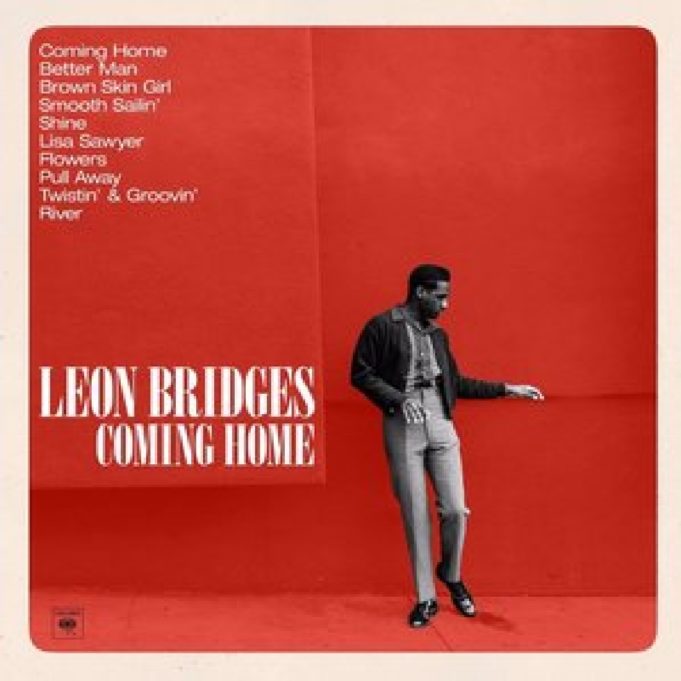“A Rational Conversation” is a music news column by Eric Ducker that you’d think would be good, seeing as how it’s connected to NPR and it’s supposed to be so rational and all.
But this latest column about Fort Worth soul singer Leon Bridges is as irrational as it is pointless.
Ducker interviews Emily Lordi, an assistant English professor at the University of Massachusetts at Amherst who’s so book-smart she’s become life-dumb, or at least incapable of kicking back and enjoying good jams without nerding out.
Here’s what she says about Coming Home, the debut album by Bridges that was recorded in Fort Worth and released this summer to national acclaim.
“The thing about Leon Bridges that I have been thinking about is his investment in 1950s and 1960s soul music, the moment before soul music’s radical political turn. There’s this moment in the ’60s where black musicians have to decide which side they’re on: Are they going to stick with more conservative, seemingly apolitical love songs? Or are they going to go for the explicitly political, socially engaged type of productions? This is everybody from Aretha Franklin to Marvin Gaye to James Brown to Sly Stone to The Temptations to Marlena Shaw. They are turning out these really powerful political records. For me, hearing Leon Bridges, I wonder what it means when his vision of soul kind of turns the clock back on soul’s more radically political moment.”
Bridges’ video for “Coming Home” made Lordi feel “sad.”
“There are no people in the video. There’s him and there’s the white lover and there’s the barber, but it seems like the only way that his feel-good vintage nostalgia can work is by absenting all the people from this urban landscape of the Jim Crow South. The video literally absents the social component from the music by depopulating that landscape. Especially at a time where Selma is released and we’re seeing our own version of this brutal, state-sanctioned anti-black violence, it’s hard to see this image of a black man moving through the Jim Crow South without thinking of some of these other scenes of violence. Even the shot of him sitting at the lunch counter, it kind of evokes and erases the history of the sit-in. The history of anti-miscegenation laws are also there and not there at the same time with the white lover — they are in private, but they also come out into public spaces. You wonder, ‘Where are the people who might have been upset about that relationship?’ Even the barbershop, which is a traditional space of black male camaraderie, we only see Leon Bridges there. His barber is white, for some reason. It’s a very curious representation.”
By Lordi’s reasoning, the twentysomething Bridges has removed soul from “it’s actual social milieu.” Meaning, I suppose, that Bridges was supposed to raise his fist and yell “black power” into the camera at some point or be considered a lame, exploitative sell-out. Who knew that a black man singing pretty songs is spitting in the face of civil rights and denying the relevance of more radical soul and hip hop music?
I hope you’re happy, Leon Bridges. Singing “I wanna be around / I wanna be around you girl” is basically racist.
Next time you record an album you should more carefully consider its impact on black music, culture, politics, and history.













I don’t think that Emili Lordi is branding Leon Bridges a sellout, nor do I think her critique can be easily dismissed as irrational and pointless. I think she puts the music and the phenom in a broader context. It’s the context of race, the one that we’d all prefer not to engage with. The question she seems to be asking is, how can we be so happy to jam out to Leon Bridges and in the same breath, coin phrases like, “pulling the race card”, when we as African Americans and people of color are being murdered and vilified as boarder-crossing, murderous rapists thugs? The nuanced and stylized world that the art around this album evokes wasn’t created in a vacuum. It shares the history and legacy of that period. Clearly, music videos shouldn’t be held to the same standards as political discourse, so I can feel you on the just-enjoy-the-music-tip. But while it’s soothing and pleasing to look at and appreciate artistically, we can’t dismiss criticism about its optics as irrational, because it was also a time of suffering for a great many folks.
As an African American artist I often have to choose between talking about art in my work versus responding to the preponderance of violence against people of color. As artists of color (or women and gay artists for that matter) we don’t have the luxury of doing one or the other. We sometimes have to be less subtle and more overt or vice versa, because it’s often a difficult choice. After the Kihende Wiley talk at the Modern art museum the other night, I heard some of the same discourse: “not political enough”, “talk more about race”, “disappointed”. It’s the difficult position of navigating race in America. So at the same time that I support any artist doing what they are driven to do, we live in a society where the work has to be considered in broader (and inescapable) contexts.
I agree. I think Lordi’s opinion is valid. You can’t compartmentalize history. Well, you can, but you will fail. And you will look like you’re hiding something. Or, worse, like you’re selling something. And it’s just fine for someone to criticize you for it, at least to enlighten the unwashed.
Every time I come across Leon’s name or music (or his “brand,” as some would say), I am reminded of a statement uttered by a certain African-American bartender at a certain popular Fort Worth bar toward Bridges in person: “Those weren’t good times for us, Leon!”
Her first sentence alerted me to the fact she couldn’t write a coherant sentence. People that ramble seldom have something valuable to share.
Easy solution: https://www.youtube.com/watch?v=0vYML_F1Nb0
how does everything get turned into something about a specific races, music or culture, politics or history? Why cant everyone enjoy an artists product and leave it at that?
Because nothing exists in a vacuum.
Yet another pointless article by Prince.
Another whiney, whimpering, mouthful of crap from Mr. Leniger. Nothing new to see here. Peckerwoods are going to be Peckerwoods. Nothing new here.
There are some people in this world who have made peace with themselves and find love and support behind every door and around every corner. If you have ever been witness to Leon’s performance you’d know he is one. And for an artist, any artist, to rise like a phoenix from THE MOST conservative town in all of Texas – and that’s no joke. You can count the number of artists who have made it out in the last few decades on one hand. Well, as far as I and many others in this town believe, Leon deserves all the support he can get. So, you naysayers, (especially in Fort Worth and especially those in the above comments) dispose of all the anger, all the jealousy, all he resentment, all the racism, and all hatred in your heart and instead replace it with all the love and all the appreciation you can muster for this young man and his amazing talent.
Keep on Leon! We believe in you and love you! You are the change this world needs now!
Sincerely Fort Worth, Texas!
This song was written beautifully.The music video was a another fantasy of weak black males yearning after white devils who perpetuate Black love hatred and eraser. This article was on point. My African American ancestors in the south during these times were getting slaughtered, raped, hung, and beat to death by Caucasian males and females. In the north, we were being degraded, abused and mistreated in the worst way by evil, greedy, selfish caucasians males and FEMALES. Today, his silly ass has the audacity to agree to be in this music video erasing how evil these people were to us. I will never support his “we are one so I can get a white girl and be accepted” music. No. No. No.
Yes. For this article though. People hate the truth. The truth is, the the music video erased what really happened during those times. Black families and communities were stronger than ever and fighting caucasians and their government for basic human rights just like this day and age. We were being denied jobs, health care, shoot clean water, wait, that sounds like This very year. Wake up sleepers.
Marquita—you have way over-complicated things. Come out of your mire of anger and resentment. Live and let live. Love is the answer.
I think his style is trying to revive the era without the racism! The style was a culture but why should he revive such a terrible era. I love 50s music because it was the beginning of African American music history. How nice would it be to be able to share that musically kick equally with everyone! A lot of the best African American artists were from the 50’s and how can we forget them? Why should we bring back the sorrow of that time. It shouldn’t live here anymore. Obviously it does still exist and history was not good for those people. We can never forget that, but I doubt he is trying to be racist or ignorant of any kind I think he is trying to revive the music. Trying to revive Sam Cookes original motive. Sam Cooke was a heavy activist for black rights, he lost his life for the vision that Leon bridges has right here! Is remembering the great artists who started music in America and bringing it back the way that it should have been represented! A lot of African Americans attempted to break boundaries Sam Cooke but also Frankie lymon when he danced with a white girl for why do fools fall in love and of course they destroyed the video but everyone still knows about it. Finally someone appreciates these 50s artists. Most of the time when you hear of the 50s people like Elvis are prized for rock and roll a white icon, when in reality most of the rock and roll now known as doo wop or now today 50s pop was primarily comprised of African Americans! Why did they never get much credit Frankie lymon and groups like them who never got credit? Or Sam cookes death in vain. Leon bridges will not let his death be in vain of soulful music celebrating the success in the music era and a big start for African American freedom or recognition into the hearts of common white people , someone who died so we could celebrate music together with no boundaries.